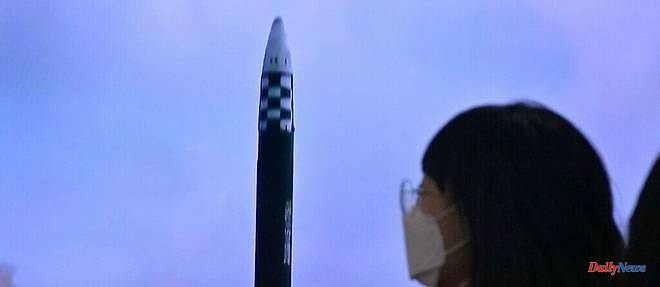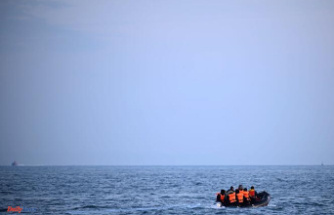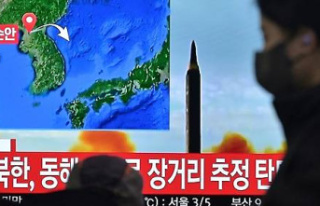A persistent armed threat. A ballistic missile fired by North Korea on Saturday (February 18th) apparently crashed in Japan's exclusive economic zone (EEZ), Japanese Prime Minister Fumio Kishida said. "It seems that the ballistic missile fired by North Korea fell in Japan's EEZ, west of Hokkaido," Fumio Kishida told reporters.
It is an "ICBM-class" intercontinental missile, Japanese government spokesman Hirokazu Matsuno said. Pyongyang "fired an ICBM-class ballistic missile in an easterly direction. It flew for approximately sixty-six minutes," Hirokazu Matsuno told reporters. He said the projectile had traveled a distance of about 900 kilometers before collapsing at 6:27 p.m. Japanese time (10:27 a.m. in Paris).
The White House reacted on Saturday and strongly condemned North Korea's firing of "an intercontinental ballistic missile". "This firing unnecessarily escalates tensions and risks destabilizing security in the region," National Security Council spokeswoman Adrienne Watson said.
Saturday's firing, Pyongyang's first in seven weeks, comes as Washington and Seoul prepare to conduct a joint military simulation exercise. "It constitutes a flagrant violation of multiple UN Security Council resolutions," the US official said.
The G7 countries also condemned North Korea's "irresponsible behavior" on Saturday. "North Korea's irresponsible behavior demands a unified response from the international community, including significant new action by the United Nations Security Council," the G7 foreign ministers said in a joint statement.
Japanese Prime Minister Fumio Kishida said he "instructed [Japanese officials] to inform the public and check the security situation thoroughly". Last November, another missile fired by Pyongyang in a series of launches of unprecedented intensity also reportedly fell into Japan's EEZ. The Japanese EEZ extends up to 200 nautical miles (370 kilometers) from its coasts.
Military tensions escalated on the Korean peninsula in 2022, when Pyongyang called its status as a nuclear power "irreversible" and conducted a record series of weapons tests, including ICBMs.












